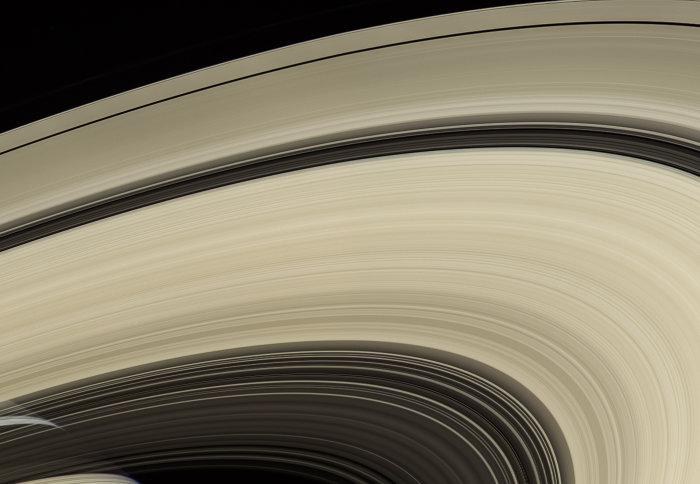Saturn’s rings and battery startup funding: News from the College

Here’s a batch of fresh news and announcements from across Imperial.
From new insights into dust from Saturn’s rings, to funding for an Imperial startup that develops next-generation rechargeable batteries, here is some quick-read news from across the College.
Saturn’s dusty equator
Dust from Saturn’s rings falling towards the planet is making the top of its equatorial atmosphere 10-100 times more electrically conductive than previously estimated.
The ionosphere – the top layer of the atmosphere ionised by sunlight – is full of charged particles including free electrons. These electrons are mopped up by the dust, changing the negative charge carrier from fast- to slow-moving particles. The study is based on the first direct measurements of a giant planet’s ionosphere from the Cassini spacecraft’s final mission close to the planet.
The results highlight the importance of charged dust and will improve existing models of Saturn’s atmosphere and its connection to the rings by the planet’s magnetic field.
Read more in Scientific Reports: ‘Saturn’s near-equatorial ionospheric conductivities from in situ measurements’.
Beyond neutral explanations
 Why are there so many different things in the world, from novels and paintings to species of tree in the Amazon? One explanation is that each thing has its own niche: its own special place in nature to which it is adapted. Another explanation is that they don’t: that all this diversity is due to ‘neutral’ forces, and the fact that some things are more common than others is down to a kind of randomness.
Why are there so many different things in the world, from novels and paintings to species of tree in the Amazon? One explanation is that each thing has its own niche: its own special place in nature to which it is adapted. Another explanation is that they don’t: that all this diversity is due to ‘neutral’ forces, and the fact that some things are more common than others is down to a kind of randomness.
But researchers at Imperial suggest many researchers misuse neutral models in what they term ‘Neutral Syndrome’, and that analysis show many of these models are not fit for purpose. The team suggest researchers need to use more informative data and more powerful tests in evaluating the true sources of diversity.
Read more in Nature Human Behaviour: ‘Neutral syndrome’.
Battery startup funding
 Addionics, a startup that develops next-generation rechargeable batteries for electric vehicles and other applications, has raised $6 million in funding.
Addionics, a startup that develops next-generation rechargeable batteries for electric vehicles and other applications, has raised $6 million in funding.
Founded by former Imperial academics Farid Tariq, Moshiel Biton and Vladimir Yufit, the company has developed a patent-protected and scalable 3D metal fabrication method that is said to enhance car battery performance, increase mileage and safety, and reduce cost and charging time. The round was funded by Next Gear Ventures and included a $2.5 million grant as part of the EU’s Horizon 2020 innovation competition.
Addionics were founded in 2017 and have labs at Imperial’s White City Incubator.
Read more about Addionics on their website.
–
Want to be kept up to date on news at Imperial?
Sign up for our free quick-read daily e-newsletter, Imperial Today.

Article text (excluding photos or graphics) © Imperial College London.
Photos and graphics subject to third party copyright used with permission or © Imperial College London.
Reporter
Dan West
Estates Division
Hayley Dunning
Communications Division
Madeleine Stone
Business School